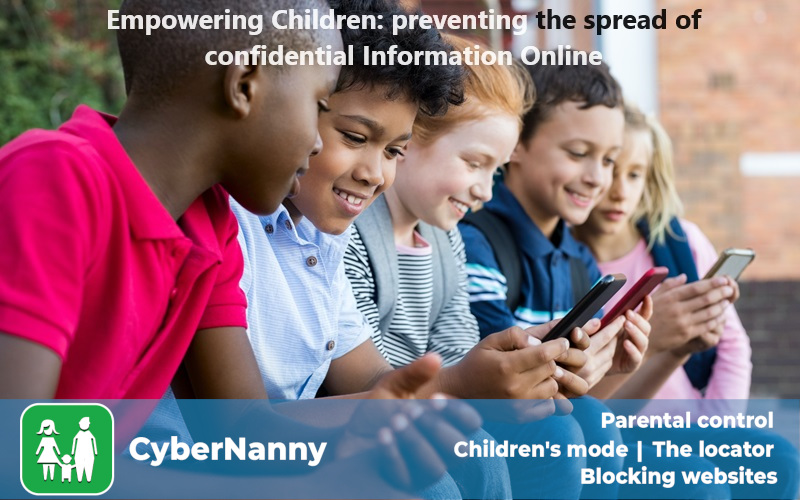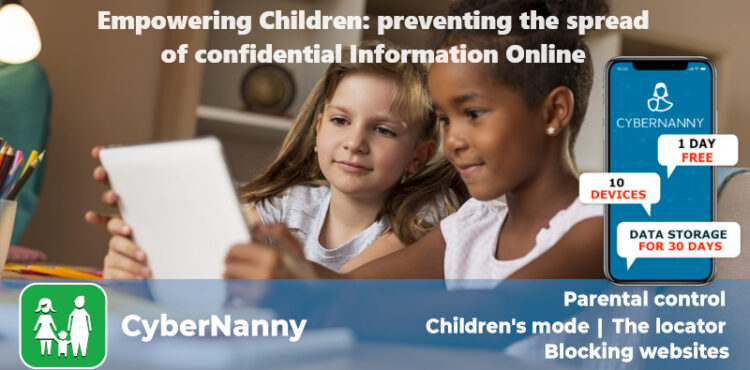In today’s digital age, teaching children to safeguard their confidential information online is crucial. Here are some effective ways to prevent children from sharing their personal information on the internet:
- Open Communication
Establish a foundation of trust and open communication with your child. Encourage them to talk about their online experiences and share any concerns they might have.
- Educate on Personal Information
Teach your child about what constitutes personal and confidential information. Include details like full name, address, phone number, school name, and financial information. Stress the importance of keeping these details private.
- Explain the Risks
Help your child understand the potential risks associated with sharing personal information online. Explain the concept of online privacy and how information shared on the internet can be accessible to strangers.
- Social Media Privacy Settings
Instruct your child on how to use privacy settings on social media platforms. Guide them through the process of controlling who can view their profile, send friend requests, or access their contact information.
- Limit Profile Details
Encourage your child to limit the personal information shared on their online profiles. Advise them to avoid including sensitive details such as addresses or phone numbers in their bios or public posts.
- Be Skeptical of Requests
Teach your child to be cautious when receiving friend requests, messages, or emails from unknown individuals. Emphasize that they should never share personal information with strangers online.
- Monitor Online Friends
Regularly review your child’s online friends or followers. Discuss the importance of only connecting with people they know in real life and the potential risks of adding strangers to their online circles.
- Warn Against Geotagging
Advise your child against using geotagging features that reveal their location in posts or pictures. Explain that this information can be misused by those with malicious intent.
- Discuss Online Scams
Educate your child about online scams and phishing attempts. Teach them to recognize suspicious emails or messages that may seek to trick them into revealing personal information.
- Lead by Example
Demonstrate responsible online behavior by managing your own privacy settings and being cautious about sharing personal information. Children often learn best by observing the actions of their parents.
- Role-Play Scenarios
Engage in role-playing exercises where you simulate online scenarios. This allows your child to practice responses to requests for personal information and enhances their decision-making skills.
- Emphasize Offline Boundaries
Reinforce the idea that offline rules about sharing personal information apply online as well. Remind your child that just as they wouldn’t share certain details with strangers in person, they shouldn’t do so online.
By combining these strategies, parents can empower their children with the knowledge and skills needed to protect their confidential information in the digital realm. Ongoing communication and guidance play a crucial role in fostering responsible online behavior.
How to set parental control on a child’s mobile phone

Installation Process:
Step 1. Download CyberNanny from Google Play and install it on your Android phone.
Step 2. Install it on your child’s Android phone.
Step 3. Maintain control of social media activities on your child’s phone.
Important Notes:
- The first 24 hours are free.
- One cabinet can connect up to 10 devices.
- Data is stored in the cabinet for 30 days from the moment of receipt.
Cautionary Information:
Parents should inform their child before installing parental controls, making them aware that their correspondence and location may be monitored.
It is imperative to exercise caution and only download CyberNanny parental control from Google Play to avoid falling victim to scammers or counterfeit applications. The protection of children online necessitates a balance between ensuring safety and fostering trust through open communication about monitoring practices.
For any inquiries, please feel free to reach out to our consultants.

